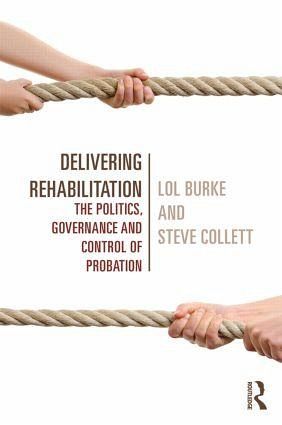
Delivering Rehabilitation
The politics, governance and control of probation
Versandkostenfrei!
Versandfertig in 1-2 Wochen
63,99 €
inkl. MwSt.
Weitere Ausgaben:

PAYBACK Punkte
32 °P sammeln!
This book offers an analysis of the delivery of rehabilitative services to offenders over the past two decades. It focuses particularly on the ideological and political imperatives of a neoliberal state that intends to segment the work of the Probation Service and hand over the majority of its work to the private sector. This book is aimed at academics, practitioners, managers and leaders within the field of corrections and wider social policy. It will also appeal to under undergraduates and postgraduates specialising in criminal justice, criminology, politics and social policy.














